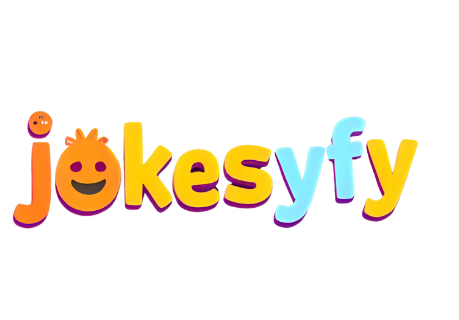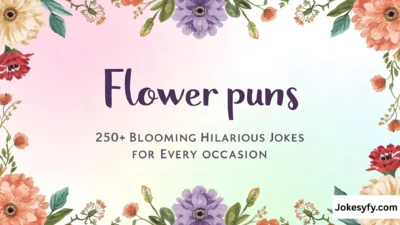Little Johnny jokes represent a beloved category of classroom humor centered around a mischievous fictional character who consistently outsmarts authority figures through clever wordplay and unexpected wit. These jokes typically feature school settings where Little Johnny’s teachers ask seemingly straightforward questions, only to receive brilliantly subversive answers that expose logical flaws or double meanings in language. The format has become culturally significant across generations, serving as both entertainment and subtle social commentary on educational systems.
The character of Little Johnny embodies the archetypal trickster who challenges conventional thinking through linguistic cleverness rather than outright rebellion. His appeal lies in how he navigates power dynamics with intelligence and quick thinking, making him a sympathetic figure for students and adults alike. These jokes continue to evolve while maintaining their core structure, demonstrating remarkable staying power in oral and digital humor traditions across diverse cultures and languages.
The Best Little Johnny Jokes Collection
Classroom Classics 🏫
- The teacher asked, “Johnny, how far have you gotten with your homework?” Johnny replied, “About eight kilometers, miss. I went home with it and came back with it this morning.”
- During math class, Johnny said aloud, “One plus six, that son of a bitch is seven. Four plus four, that son of a bitch is eight.” When his shocked mother confronted the teacher, the teacher explained, “What I taught them to say was, one plus six, the sum of which is seven.”
- The teacher noticed Johnny’s essay was identical to his sister’s and asked if he copied. Johnny said, “No, teacher, it is the same dog!”
- “Johnny, what a strange pair of socks—one green and one red.” Johnny replied, “Yes, it is very strange. I have another pair at home exactly the same.”
- The teacher asked, “Does anybody know what we call a person who keeps talking when nobody else is interested?” Johnny answered, “A teacher, miss.”
- When the teacher asked Johnny to spell “elephant,” he said, “E-L-E-F-A-N-T.” The teacher corrected him, but Johnny responded, “Maybe it is wrong Miss but you asked how I spell it.”
- A new teacher asked, “Everyone who thinks they are foolish, stand up.” After a while, Johnny stood up. When asked if he thought he was foolish, he replied, “No, Miss, but I hated seeing you standing there all by yourself.”
- The teacher instructed, “Johnny, always say ‘I am’ instead of ‘I is’.” Johnny continued, “Okay, Miss… I am the ninth letter of the alphabet.”
- The teacher asked, “If I gave you two cats, another two cats, and another two, how many would you have?” Johnny confidently answered, “Seven.”
- During a lesson on pronouns, the teacher said, “Johnny, the ‘I’ has to be followed by an ‘am’.” Johnny complied: “Alright. I am the ninth letter.”
Teacher Troubles 😂
- The teacher asked, “Now Little Johnny, be honest, do you say your prayers every night before dinner?” Johnny answered, “No miss, my mother is a really good cook.”
- When the teacher asked the class to define “hard work,” Johnny answered, “Thinking about working.”
- The teacher scolded, “Johnny, you can’t sleep in my class!” Johnny replied, “I could if you spoke softer!”
- The teacher asked, “Why are you talking during my lesson?” Johnny explained, “Because I like to multitask!”
- When the teacher demanded, “Stop staring at the clock!” Johnny claimed, “I’m watching time fly.”
- The teacher questioned, “Why didn’t you raise your hand?” Johnny said, “I was raising awareness.”
- The principal asked, “Why are you always in trouble, Johnny?” He answered, “Because trouble loves company, sir!”
- The teacher asked, “Johnny, name a subject you’re good at.” Johnny immediately responded, “Recess!”
- When the teacher inquired, “You missed school yesterday, didn’t you?” Johnny said, “Not at all! The building missed me!”
- The teacher wondered, “Who invented homework?” Johnny answered, “A villain in disguise.”
Family Interactions 👨👩👧👦
- Johnny asked his mother for $20. When she refused, he said, “If you give me $20 I will tell you what dad said to the maid when you were out shopping.” After receiving the money, he revealed: “Hey Doris, can you make sure that I have a clean shirt for tomorrow.”
- Johnny asked his grandpa to croak like a frog. After complying, his grandpa asked why. Johnny said, “Mommy said that we’ll be loaded when you croak.”
- Johnny told his parents he was ready to live alone. When they expressed pride, he said, “Great, I left your luggage next to the front door. See ya!”
- Johnny’s dad asked, “Do you know what responsibility means?” Johnny responded, “Is it a new video game?”
- When his mom insisted, “Johnny, clean your room!” Johnny explained, “I prefer it in ‘creative chaos.'”
- Johnny’s dad asked, “How was your test?” Johnny replied, “Multiple guess never fails.”
- When his mom questioned, “Why are your socks in the microwave?” Johnny answered, “Long story, short version—science project.”
- Johnny’s dad asked, “Why did you buy 10 pens?” Johnny explained, “So I can lose them one by one.”
- When his mom asked, “What’s 6×7?” Johnny declared, “I don’t do math after 5 PM.”
- Johnny asked his dad, “Have you ever been to Egypt?” When his dad said no, Johnny asked, “Well where did you find our mummy?”
Quick One-Liners and Zingers 💥
- Why did the teacher wear sunglasses? Because Little Johnny was so bright!
- Why did Little Johnny bring a pillow to class? Because he wanted to sleep through math.
- Why didn’t Little Johnny do his history homework? Because he didn’t think the past was important!
- Why did Little Johnny take scissors to his report card? To cut out the bad grades!
- Why did Little Johnny bring ketchup to class? In case he needed to catch up!
- Why did Little Johnny put his pencil in the fridge? He wanted a cool point!
- Why did Little Johnny bring soap to school? Because he wanted to clean up his act!
- Why did Little Johnny stare at the teacher’s shoes? Because he heard she was going to “step into” the lesson!
- Why did Little Johnny write his name in invisible ink? He wanted to stay off the attendance list!
- Why did Little Johnny put his desk on the roof? He said he needed a higher level of thinking!
Why Little Johnny Jokes Remain Popular
The enduring appeal of Little Johnny jokes lies in their perfect balance of mischief and intelligence, creating a universally relatable character who says what others only think. These jokes tap into the natural dynamic between authority figures and children, with Johnny serving as the clever underdog who consistently triumphs through wit rather than defiance. His character embodies healthy skepticism toward arbitrary rules and conventional thinking, making him a folk hero for challenging absurdity in educational and family systems.
These jokes continue to thrive because they represent safe rebellion within structured environments. Unlike outright disrespectful behavior, Johnny’s cleverness demonstrates critical thinking and linguistic creativity—qualities most educators genuinely want to foster. The cultural transmission of these jokes across generations creates shared understanding and nostalgia, while their simple structure makes them easy to remember and adapt. In digital spaces, Little Johnny has found new relevance as his classic misadventures translate perfectly into memes and social media content, ensuring his continued presence in humor culture.
How to Tell Little Johnny Jokes Effectively
Setting Up the Punchline
- Establish the classroom context clearly by specifying the teacher-student relationship before delivering the setup question
- Use straight-faced delivery for the authority figure’s lines to create contrast with Johnny’s subversive answers
- Maintain a neutral tone during the setup to make the punchline more surprising and impactful
- Practice timing pauses between the setup question and Johnny’s response to build anticipation
- Emphasize logical flaws in the adult’s question that Johnny will exploit in his answer
- Keep descriptions minimal to focus attention on the dialogue exchange where the humor lives
- Keep the classroom scenario recognizable without excessive detail that might distract from the punchline
- Keep the teacher’s question plausible enough to maintain the realistic school setting
- Ensure the transition from setup to punchline flows naturally without explanation between elements
- Maintain consistent character voices if performing multiple jokes to strengthen the familiar pattern
Understanding Your Audience
- Choose age-appropriate material by avoiding adult themes when children are present
- Consider educational backgrounds since those with school experiences appreciate the classroom dynamics more
- Assess group dynamics before sharing to ensure the humor aligns with social context
- Gauge authority sensitivity since some audiences might misinterpret the teacher-student power dynamic
- Select relevant scenarios that connect with your listeners’ own school experiences
- Read the room for receptiveness to wordplay versus more straightforward humor
- Consider cultural background as some wordplay might not translate across different English dialects
- Start with milder examples when uncertain about audience taste to test receptiveness
- Watch for recognition smiles when mentioning “Little Johnny” to identify those familiar with the character
- Avoid over-explaining jokes as this often diminishes their comedic impact
Creating Your Own Little Johnny Jokes
Essential Elements and Structure
- Identify a common assumption or logical flaw in adult questions that a child might notice
- Create realistic classroom scenarios that audiences will immediately recognize and understand
- Develop literal interpretations of figurative language or common expressions as punchline sources
- Maintain character consistency by keeping Johnny clever but not mean-spirited in his responses
- Use simple language appropriate for a child’s vocabulary while allowing for sophisticated wordplay
- Focus on single-concept humor rather than complex setups that might confuse the audience
- Ensure the punchline reveals an unexpected perspective on the original question
- Keep the exchange brief with quick back-and-forth dialogue that builds to the punchline quickly
- Root the humor in observation rather than outright disrespect toward authority figures
- Test the logical connection between setup and punchline to ensure the humor makes sense
Finding Inspiration
- Listen to actual child conversations to capture authentic misunderstanding of adult concepts
- Notice language ambiguities in everyday speech that could be interpreted literally
- Recall your own school experiences with confusing instructions or seemingly illogical rules
- Observe teacher-student interactions in educational settings for realistic dynamic inspiration
- Read existing collections to understand patterns while ensuring your creations remain original
- Watch classic school television shows to analyze humorous student-teacher exchanges
- Explore common idioms that could be misinterpreted literally for potential punchlines
- Consider modern educational trends that might present new opportunities for humorous commentary
- Brainstorm with friends about their funniest school experiences for scenario ideas
- Keep a joke journal to record potential setups and punchlines as they occur to you
Little Johnny Jokes for Different Audiences
Family-Friendly Selections
- The teacher asked, “What comes after 8?” Johnny answered, “9, but I prefer snack time.”
- When his grandma said, “You’re such a sweet boy,” Johnny replied, “Only on days that end in ‘Y’!”
- The teacher asked, “Name an animal that lives in water.” Johnny said, “My rubber ducky!”
- When his mom asked, “Did you eat your vegetables?” Johnny claimed, “No, but I stared at them until they disappeared!”
- The teacher said, “Spell ‘dog.'” Johnny responded, “D-A-W-G. That’s how cool kids spell it!”
- When his dad asked, “What did you do at recess?” Johnny said, “Got famous for my cartwheel… into the bushes.”
- The teacher instructed, “Stop playing and clean your room.” Johnny explained, “I’m doing an archaeological dig!”
- When his sister said, “You’re annoying,” Johnny responded, “Thanks, I practice every day!”
- The teacher asked, “Why are you staring at the clock?” Johnny said, “I’m trying to speed up time with my mind!”
- When his mom asked, “What did you learn at school today?” Johnny said, “Apparently not enough, I have homework!”
More Advanced Humor
- During health class vocabulary, the teacher avoided calling on Johnny for words like “rectum” and “defecate” but finally relented for “urinate.” Johnny said, “Urinate… But if your boobs were bigger, you’d be a 9.”
- In Bible study, the teacher asked Sally questions while she slept. Johnny poked her with a pin, making her yell “Jesus Christ!” when asked about our Lord and Savior, and “my god!” when asked who created the world.
- When learning about periods, Johnny asked why they’re important, explaining, “When my sister told us that she missed a period, my father began yelling, and my mom passed out.”
- The class was talking about the word “definitely.” Johnny asked, “Are farts solid?” When everyone said no, he responded, “Then I definitely pooped my pants.”
- When asked what he wanted to be, Johnny said, “A detective. So that way I can be just like dad.” The teacher was surprised, and Johnny clarified, “Oh no, he’s not a detective. He’s a thief.”
The Cultural Impact of Little Johnny
The enduring character of Little Johnny represents more than simple comedy—he embodies the universal experience of navigating authority structures while maintaining individual critical thinking. As a cultural archetype, he appears in various forms across different countries, from England’s “Little Tommy” to Australia’s “Little Johnny” himself, demonstrating how this character resonates across educational systems worldwide. These jokes serve as social commentary that allows both children and adults to safely examine power dynamics through humor rather than direct confrontation.
In many communities, sharing these jokes becomes a rite of passage that introduces younger generations to subtle forms of social criticism and linguistic creativity. The character’s staying power across decades demonstrates how humor can preserve cultural attitudes toward education and authority while adapting to contemporary sensitivities. As educational methods evolve, Little Johnny continues to find new relevance, with his classic misadventures translating into digital formats and meme culture while maintaining their core commentary on the eternal dance between students and authority figures.
Using Little Johnny Jokes in Education
Surprisingly effective as teaching tools, Little Johnny jokes offer educators valuable opportunities to explore language mechanics, critical thinking, and social dynamics in engaging ways. Teachers can use these jokes to demonstrate literal interpretation of figurative language, showing students how words can have multiple meanings depending on context. The jokes naturally illustrate logical fallacies and assumption challenges, making abstract concepts accessible through humor and familiar scenarios.
For language arts instruction, these jokes provide perfect examples of puns, double meanings, and wordplay devices that students can analyze and emulate in their own writing. The clear story structure helps young writers understand setup and punchline dynamics in narrative forms. For social development, the jokes present opportunities to discuss appropriate responses to authority and constructive ways to question unclear instructions without disrespect. When used strategically, these classic jokes transform from simple entertainment into powerful educational tools that make learning memorable and engaging.
Frequently Asked Questions
What is the origin of Little Johnny jokes?
The exact origins of Little Johnny jokes are difficult to pinpoint, as similar mischievous student characters appear in oral traditions across multiple cultures. The character as we know him today seems to have evolved gradually throughout the 20th century, with jokes appearing in comedy books and playground conversations. What’s remarkable is his cultural adaptability, with different countries developing their own versions while maintaining the core dynamic of a clever child outsmarting authority figures through wordplay and logical thinking.
Are Little Johnny jokes appropriate for children?
Most Little Johnny jokes are perfectly appropriate for children, particularly the classic classroom scenarios that focus on clever wordplay and innocent misunderstandings. However, some versions venture into adult themes or bathroom humor, so parents and educators may want to preview selections. The best approach is to choose jokes that emphasize intelligence and cleverness rather than disrespect or inappropriate content, as these provide positive humor models while still delivering the subversive satisfaction that makes the character appealing.
Why are most Little Johnny jokes set in schools?
Schools provide the perfect setting for these jokes because they represent universal experiences where authority dynamics, language learning, and logical thinking intersect. The classroom environment naturally creates the power imbalance that makes Johnny’s cleverness so satisfying, while educational contexts provide endless opportunities for wordplay and misunderstandings. Additionally, the familiarity of school scenarios across generations and cultures makes the jokes immediately accessible without extensive setup or explanation.
Can I create my own Little Johnny jokes?
Absolutely! Creating original Little Johnny jokes is an excellent way to exercise creativity and linguistic thinking. The key is to maintain the character’s essential qualities—clever but not malicious, observant but not cruel—while finding new scenarios or wordplay opportunities. Start by identifying common expressions that could be interpreted literally, or think of logical flaws in adult questions that a child might notice. The most successful new jokes often combine the classic structure with contemporary references or educational concepts.
Conclusion: The Timeless Appeal of Clever Humor
Little Johnny jokes continue to delight audiences because they represent the triumph of wit over authority and conventional thinking. These jokes have maintained their cultural relevance across generations by tapping into universal experiences of education, language acquisition, and navigating power dynamics. The character’s enduring popularity demonstrates how humor rooted in intelligence and observation transcends temporary comedic trends to become part of our shared cultural heritage.
As you share these classroom antics with others, remember that you’re participating in a longstanding tradition of humor that celebrates critical thinking and linguistic creativity. Whether you’re recalling classic favorites or creating new additions to the canon, Little Johnny’s mischievous spirit continues to remind us that sometimes the most powerful response to absurdity isn’t rebellion, but a perfectly timed clever observation that exposes the underlying logic flaws. That timeless truth ensures Little Johnny will continue entertaining and inspiring audiences for generations to come.

I am Charles K Baxter, a humor enthusiast passionate about spreading joy and positivity through laughter.




